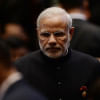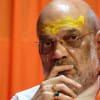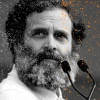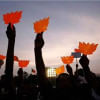Fear and loathing surrounding India’s election

As the Indian election enters its fourth phase, there seems to be a growing perception among the public as well as various human rights organisations and activists that things are not going as well as they thought in the previous general elections. One of the more prominent differences, perhaps, is that the tone and content of campaign speeches have reached a new low.
Politicians trade insults and tell lies to win over votes all the time with an "ends justify the means" approach. In India, there has been plenty of that in the last two elections. Yet, something seems different this time.
In 2014, the main drive of the Bharatiya Janata Party (BJP) came in the form of Acche Din (Good Days) to take advantage of the anti-incumbency factor, the creation of two crore jobs every year, along with the projection of the Congress as a corrupt party. In 2019, national security and the Pulwama attack followed by the Balakot airstrike became the major marketing points for BJP's win. This time, not even the Ram Mandir issue seems to be rallying BJP supporters to the same level of exuberance, and experts have been predicting that this election will be anything but a cakewalk for the BJP and its charismatic but controversial leader Narendra Modi.
And that is perhaps why Modi and his party have ramped up their anti-Muslim rhetoric. After the first phase of voting, Modi seems to have changed his campaign strategy, focusing more on firing up BJP's Hindu base by attacking his political opponents as pro-Muslims, even as a survey revealed that jobs and inflation were the main concerns for voters.
In his public speeches, Modi referred to Muslims as "infiltrators" and "those who have more children." According to Hartosh Singh Bal, executive editor at news magazine The Caravan, this is the first time in a long time that Modi has been so direct in his statements about Muslims. "I haven't seen him be this directly bigoted, usually he alludes to bigotry," he said.
According to Ali Khan Mahmudabad, professor of political science at New Delhi's Ashoka University, this change in BJP's campaign may also be a sign of anxiety driven by lower-than-expected voter turnout. In the first two phases, voter turnout was somewhere around 66 percent. In 2019, voter turnout for the same two phases was 69 percent—and the BJP's wins have been associated with getting the voters out.
Faced with Rahul Gandhi's emphasis on removing reservation ceiling on government jobs, Modi cleverly said that "they [Congress] want to grant reservation to one section of the society [i.e. Muslims] by cutting into the quotas meant for Dalits and backward classes." And to frighten Hindu women in particular, he said, "My mothers and sisters, they won't even leave your Mangalsutras [sacred necklace worn by married Hindu women]. The Congress manifesto says that if they form a government, then a survey of property belonging to every person will be done. It will be checked how much gold our sisters own… They also said that gold owned by our sisters would be equally distributed."
Meanwhile, the Sikh community, too, has been put under the microscope after a recommendation was made publicly on May 3, demanding that the Union Home Ministry probe into the Aam Aadmi Party (AAP) allegedly receiving political funding from the banned organisation Sikhs for Justice based outside India. The probe was recommended on the basis of a complaint received on April 1 from the national general secretary of the World Hindu Federation of India (WHFI). And it has been alleged that by getting a private Hindu body to complain, an attempt is being made to drive a wedge between the Hindu and Sikh communities—as the same allegation was made in 2022, which ended up being dismissed by a Delhi court.
The opposition INDIA alliance, on the other hand, led by Congress, has been trying to use the BJP's 2014 anti-incumbency playbook. It has also been focusing on pitching for better representation and welfare programmes for India's poor and disadvantaged groups.
But perhaps one of the biggest blows to have hit the BJP so far has been of its own making, having to do with the electoral bond scam. In February 2024, six years after being approved in parliament , the Supreme Court declared the scheme unconstitutional and scrapped it. It also forced the government to reveal the full details of the scheme—who purchased the bonds and donated them to which party, for example—and an analysis of the data reveals several scams that were hidden beneath the cloak of secrecy surrounding electoral bonds.
Two months after the Supreme Court decision, Modi defended the scheme claiming it was meant to curb black money in elections and bring in greater transparency. However, given the scheme had been challenged in the Supreme Court precisely on the grounds that it made electoral funding of political parties opaquer and that it legitimised high-level corruption at an unprecedented scale by removing funding limits for corporate donors, it is becoming obvious to voters that Modi's claims are inaccurate.
How these factors will affect Modi's aura as a strong and charismatic leader may ultimately determine which direction the election ends up going. The centralising power of his office and ongoing challenges to the independence of media and judiciary have led distinguished Indian scholar Ramachandra Guha to declare of Modi that "the self-proclaimed Hindu monk of the past has… become, in symbol if not in substance, the Hindu emperor of the present."
As Indians become increasingly disenchanted with his economic policies—which have failed to deliver the success Modi had promised—can the "emperor's" cult of personality see the BJP to an unprecedented third term in power? And what mess might likely be created as a result of the divisional tactics being employed in this election, to use voters' fear to drive up votes for each party?
Eresh Omar Jamal is deputy head of editorial and opinion at The Daily Star. His X handle is @EreshOmarJamal
Views expressed in this article are the author's own.
Follow The Daily Star Opinion on Facebook for the latest opinions, commentaries and analyses by experts and professionals. To contribute your article or letter to The Daily Star Opinion, see our guidelines for submission.

 For all latest news, follow The Daily Star's Google News channel.
For all latest news, follow The Daily Star's Google News channel. 










Comments